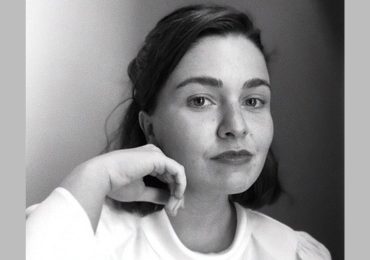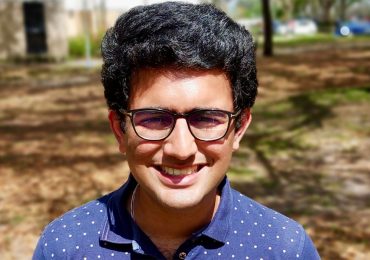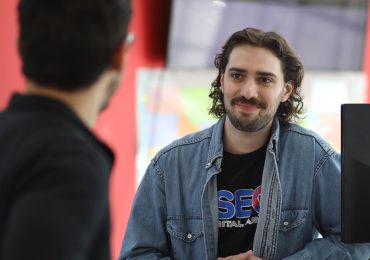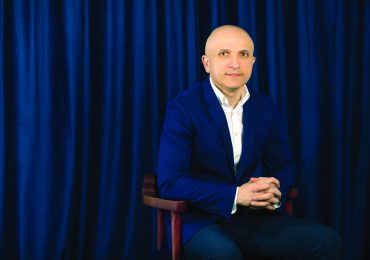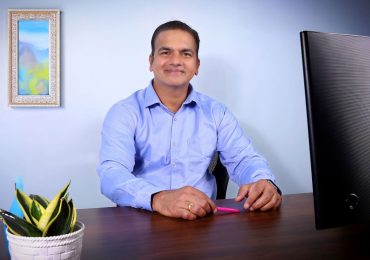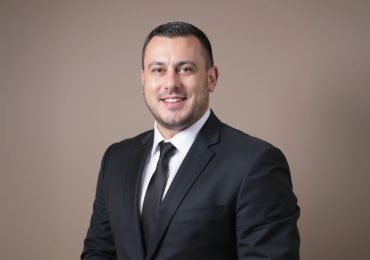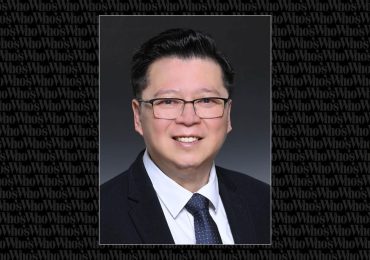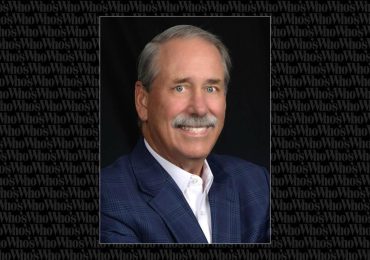At the age of 26, financier David Kharatishvili occupies a prominent position among the 2023 Under-30 honorees. However, his mission extends beyond a single appearance on a Forbes Georgia list.
As the Forbes Georgia editorial team diligently crafted the under-30 list in April, jury members frequently found themselves in spirited debates. Even within the editorial board, passionate discussions ensued. It undeniably proved to be a challenging endeavor to collectively identify 30 exceptional individuals who would rightfully earn their spot on the coveted 2023 list from the numerous applications.
At the age of 26, David Kharatishvili stood out as a unanimous choice among both the jury members and editors for inclusion on the list. His recognition came in the category of finance, where he joins a group of young professionals dedicated to advancing both conventional financial instruments and digital and crypto services. The leaders of prominent investment and banking institutions in Georgia collaborated with us this year to identify category frontrunners. In unison with our esteemed partners, the editorial team also shares the conviction that David’s mission extends beyond a mere single inclusion on a Forbes Georgia list.
The primary objective of this October issue is to introduce our readers to this aspiring young financier who intends to bring his expertise back to Georgia after completing his studies at Stanford.
Eight years ago, David Kharatishvili was a student at Vazha-Pshavela Public School #87 in Tbilisi. Faced with the pivotal decision of choosing his future path, this young teenager made a momentous choice that encompassed both his profession and university destination.
Reflecting on those days, he recalls that despite his natural aptitude for algorithms and impressive success in STEM-related subjects, he initially hesitated to commit to this direction, fearing potential boredom. Today, he acknowledges that he might have made a mistake back then, but he now possesses a multitude of compelling reasons in favor of pursuing a business education.
The basis for these arguments primarily stems from David’s psychological profile, characterized by analytical, strategic, and reflective qualities. Traits such as high standards, innovative thinking, and a natural inclination to delve deep into knowledge align closely with David’s personality type. His academic and professional achievements serve as tangible evidence of these inherent traits.
David underscores his decision by highlighting the versatility of the business field. “It’s an area where you can pivot your path multiple times. Fundamental business knowledge ensures this adaptability,” he states. He emphasizes that having the ability to reassess his career and seamlessly transition between different directions was a pivotal factor in his decision-making process.
He was determined to gain admission to the most prestigious business school in the country. Despite his outstanding academic record, securing a spot at the Tbilisi Free University Business School (ESM) presented an intimidating challenge for him.
He could not have been more mistaken. In 2015, he achieved the second-highest score nationwide in the national exams, surpassing all other incoming first-year students at the Free University. This accomplishment significantly broadened his horizons. It was during this period that he became acutely aware of his global competitiveness. He resolved to pursue his education at one of the world’s leading universities.
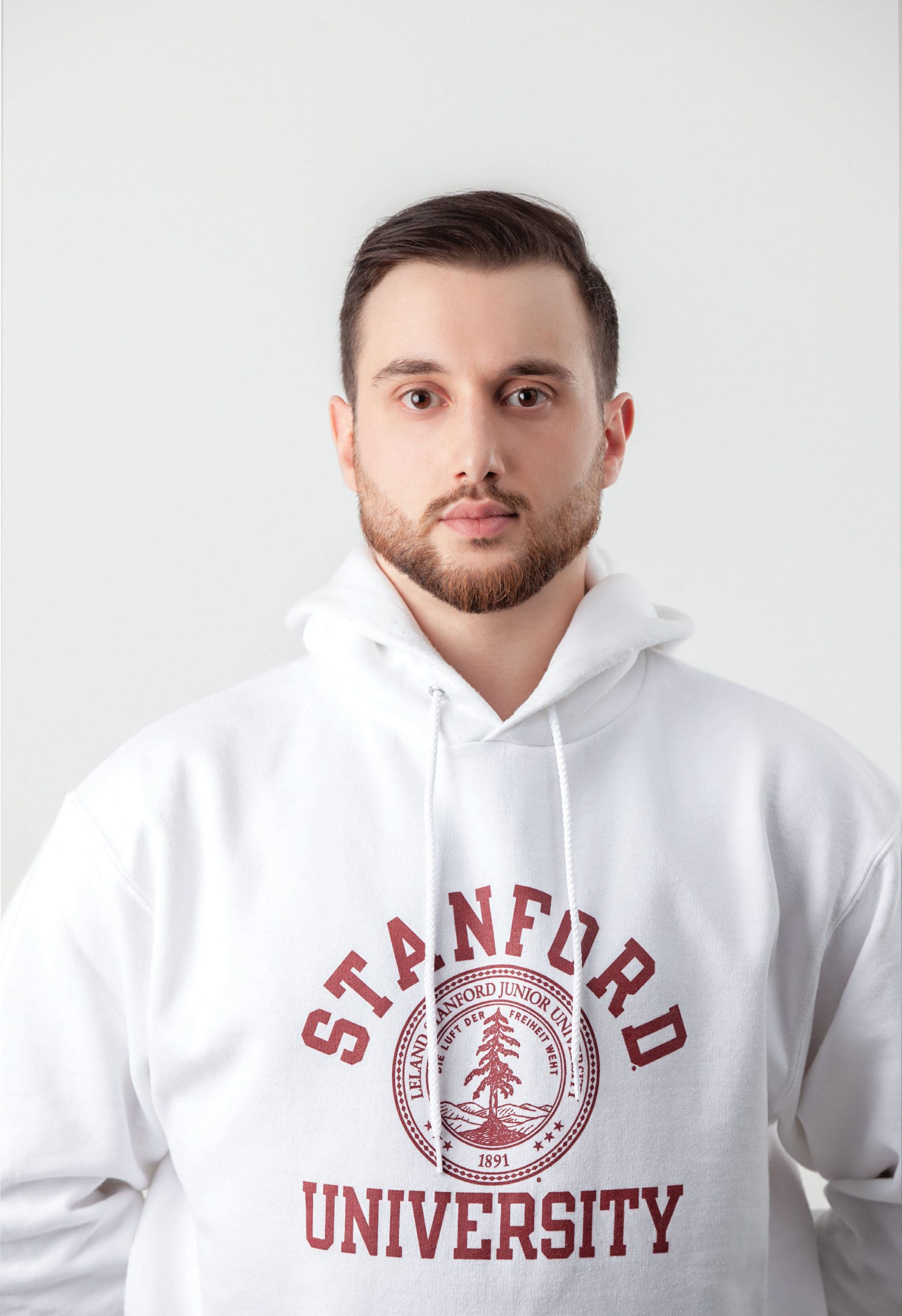
Right from the outset, he had his sights set on the next academic milestone: pursuing an MBA, specifically at Stanford University. During his time at the Free University, he and his peers established a club affiliated with the world-renowned startup accelerator, Y Combinator. Within this club, he and a classmate translated Stanford University’s training course, which they later taught.
Simultaneously, he delved deep into the curricula and accomplishments of the world’s leading business schools and their graduates. During this extensive research, he reaffirmed his belief that Stanford University was the ideal destination for the next step of his education. He was drawn to its innovative academic programs in the vibrant ecosystem of Palo Alto, rich with opportunities for startups. These factors collectively played a significant role in influencing his choice.
In 2019, David graduated from the Free University, achieving an impressive top grade point average (GPA). However, instead of hastily diving into his next endeavor, the high-achieving graduate recognized the need for more than just academic excellence to thrive at the next level. Thus, he wisely dedicated several years to amassing a diverse range of work experience and practical skills.
He frequently acknowledges the unwavering support he has received from his family. Yet, he also emphasizes that while family support is invaluable, it alone may not be sufficient for building self-confidence. He contends that, at times, recognition from external sources is necessary.
He believes that attaining success in the academic realm is relatively straightforward; it demonstrates evidence of positive outcomes within a short timeframe. However, the dynamics shift when long-term results are required, as they demand a different set of challenges and skills.
“The Free University represented a significant milestone for me during that period. The success I achieved there bolstered my self-confidence, which endured over time. When you attain the results you aspire to and receive acknowledgement for them, it imparts confidence that extends to other endeavors,” David reflects. He further explains that his past academic achievements have been instrumental in navigating fields where the desired outcomes or recognition necessitate sustained, long-term efforts.
During his studies at ESM, David meticulously strategized his career trajectory. He was acutely aware that he needed unique and noteworthy experiences and accomplishments to stand out among prospective Stanford applicants. While studying at the Free University, he proactively attended job fairs, leveraging his exceptional academic record. Additionally, he earned scholarships from both Bank of Georgia and JTI Georgia.
However, when confronted with a decisive career decision, he consciously opted not to pursue a corporate path. His rationale rested in the inherent rigidity of such large organizations, which he deemed incompatible with his aspirations for flexibility and adaptability.
Therefore, David embarked on a journey with a novice FMCG (Fast-Moving Consumer Goods) company, eventually ascending to the role of financial director within three years. Concurrently, he also dedicated his efforts to projects aligned with his interests. His initial venture was an equity crowdfunding project executed in the US market, where he spearheaded fundraising efforts from non-institutional investors.
The subsequent and notably substantial endeavor involved the creation of Investment Ark. Presently, this consultancy firm specializes in helping startups with investor interactions and securing financial support through an array of services, including financial modeling, business plan development, and investor relations management, among others. In addition to assisting startups, David’s company also extends its services to venture capital firms.
“Throughout that time, I constantly wrestled with the fear that my background might fall short of Stanford’s expectations. I found myself vying against individuals who had amassed experience in multinational corporations,” David recollects, underscoring his unwavering preference for an ideal working environment. This priority eclipsed any potential risks. Ultimately, his significant contributions to the growth of a smaller FMCG company proved to be intriguing and appealing to Stanford University.
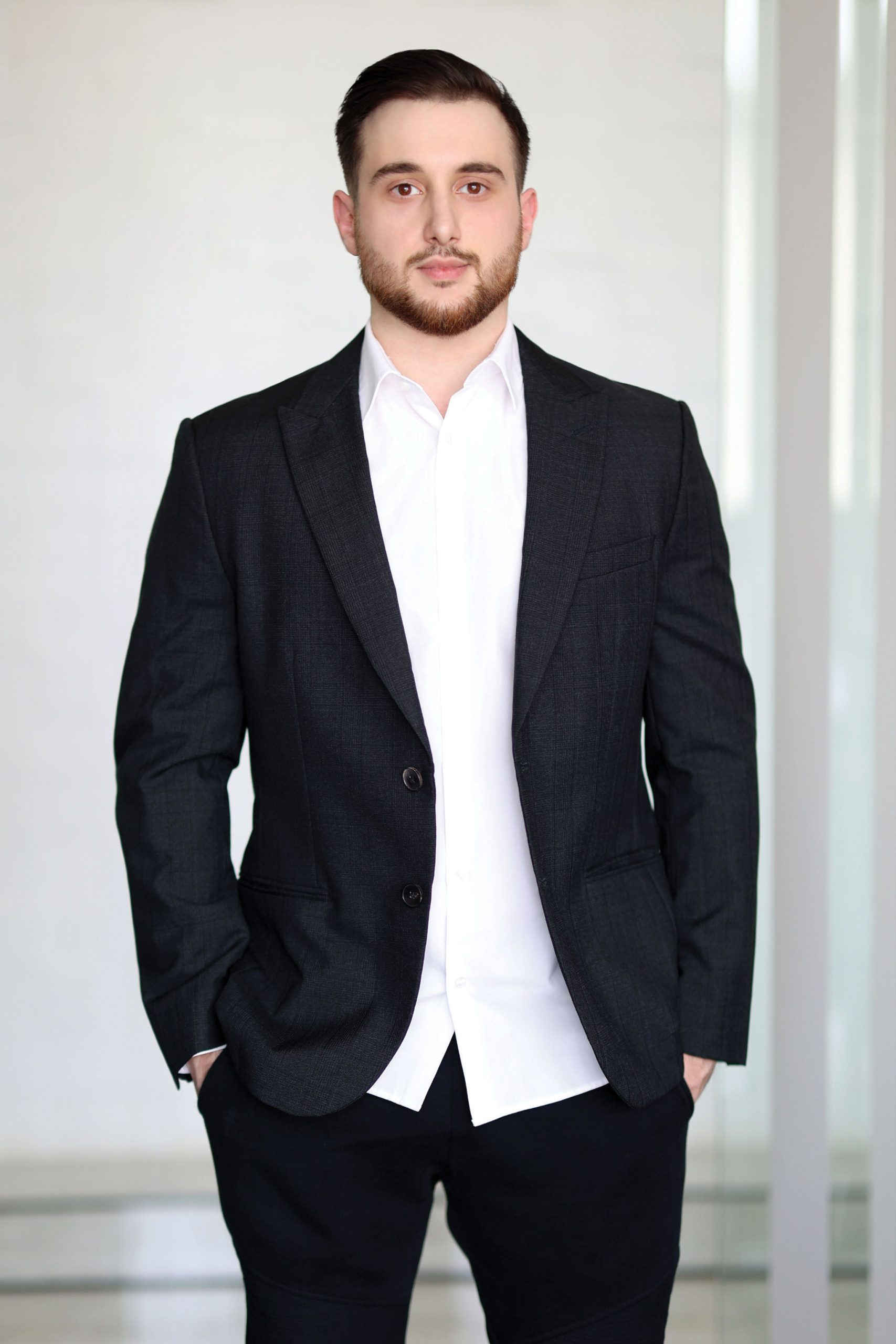
In 2022, David received offers from both Stanford University and the University of Pennsylvania (Wharton School) for their Master of Business Administration (MBA) programs. These programs are renowned as the most prestigious and competitive in the world. Stanford occupied the top spot, while Wharton ranked second in the global MBA program rankings. It comes as no surprise that David ultimately opted for Stanford.
“When you hold something in high regard, getting close to achieving it becomes an invaluable experience. Stanford was the epitome of that for me. Arriving here altered many of my perspectives. It was like dismantling the last idol,” David remarks, explaining that studying at Stanford has been a one-of-a-kind experience. This uniqueness arises from the diverse range of courses offered by Stanford University and the unparalleled opportunity to cultivate an extensive professional network.
While studying at Stanford, David continues to spearhead Investment Ark, the consultancy firm he founded. Reflecting on the three years since its inception, David highlights the remarkable outcomes: engagement with over 350 startups, facilitating connections with more than 100 investors, assisting clients who secured acceptance into Y Combinator, and accumulating a portfolio of multi-billion-dollar clients, to name just a few of the key achievements. Positioned at the vanguard of industry trends and within the dynamic startup ecosystem, this consultancy firm currently brings together numerous professionals under David’s guidance and leadership.
David emphasizes his utmost regard for discipline and a strong sense of responsibility when discussing his team, stating, “I would prefer an inexperienced team member who possesses these two fundamental qualities over the reverse scenario.” A teammate’s commitment to personal growth and continuous self-improvement is equally significant to him.
When asked about his ideal leadership style, he responds by emphasizing the importance of leading by example: “One of the chief roles of a leader in the workplace is to ensure a sense of fairness.” He believes that a sense of injustice arises when a leader fails to listen to a competent team member or treats an issue with less seriousness than others.
Discussing the topic of forming a team naturally leads to the experience of launching a company. David emphasizes that choosing a co-founder is challenging and can be as critical as the business idea itself. “I have had long-standing connections with everyone I have embarked on a venture with, either through prior business relationships or academic associations,” he reminisces. Furthermore, when it comes to selecting a co-founder, he emphasizes that trust holds greater significance than the co-founder’s functional alignment with the business activity.
“My co-founder and I have always maintained interconnected roles; we’ve never been so segregated that we couldn’t comprehend or cover each other’s responsibilities. It’s essential for a company to have a backup in leadership — alongside a technical cofounder, having someone well-versed in business development and operations is crucial,” he affirms.
In our discussion, we delve into the process of idea development. David describes his approach as straightforward, adaptable, and well-proven over time. When a concept first sparks his interest, he dedicates several months to exploring it. Subsequently, he initiates conversations with individuals experienced in the relevant field, seeking feedback and actively refining and evolving the idea. Once the business concept is well-defined, he seeks out like-minded individuals who share his vision and possess similar interests to collaborate on its execution.
The process is fraught with numerous pitfalls and risks, according to David, who stresses the importance of adopting a pragmatic, rather than overly idealistic, outlook. Drawing from his own experiences, he underscores the need to pay close attention to marketing signals. Some concepts demand substantial capital, making initial idea validation imperative. This involves asking probing questions, heeding feedback, and conducting thorough market analysis.
David further advises thorough research on potential competitors, assessing their available resources, experience, marketing strategies, budgets, and customers. He also suggests evaluating the intellectual capital within their team. By doing so, David contends, one can gain insights into the feasibility of developing a competitive product.
“The process of working on ideas can be challenging. Balancing the need to nurture someone’s enthusiasm with the realism that not all ideas are feasible is a delicate task. There are instances where it becomes necessary to discard an idea. In such cases, maintaining objectivity and not becoming too emotionally attached to the concept is crucial”, observes David.
The distinctive journey and the accomplishments of Investment Ark ultimately earned David Kharatishvili the recognition of being included in this year’s Forbes Georgia under 30 list in May.
“The concept of 30 Under 30 is truly fascinating. It provides a unique opportunity to connect with accomplished and talented individuals, both locally and globally,” David expresses, highlighting the significance of his inclusion on this list and his participation in this platform. He underscores the value of the extensive networking opportunities offered by Forbes Georgia, enabling the development of fresh ideas, interaction with ambitious peers, and the global dissemination of achievements.
We conclude our interview with David Kharatishvili by discussing his future aspirations. After completing his studies, he envisions returning to Georgia, where he will continue to steer the endeavors of his own company and engage in the exploration of new ideas.
Throughout the interview, it became evident that being part of the 30 Under 30 list is just the start of David Kharatishvili’s journey.



